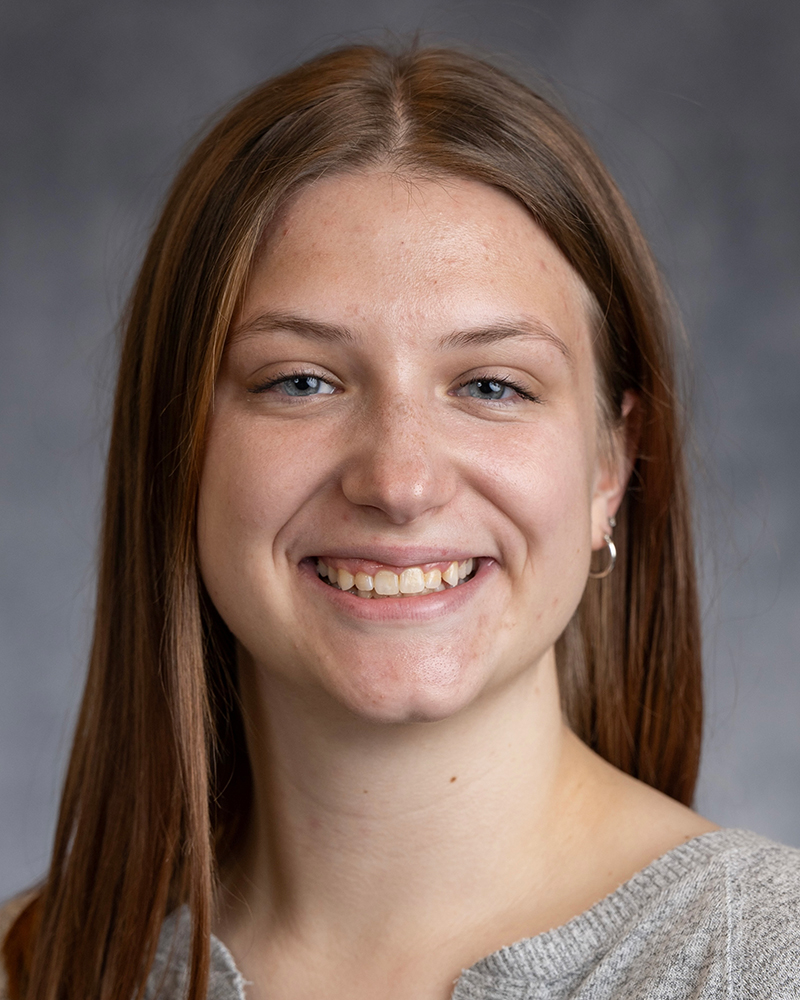Each month, the editors of three of the American Society for Pharmacology and Experimental Therapeutic’s (ASPET) journals choose who they call their Highlighted Trainee Authors. These early-career scientists are recognized for their innovative research published in The Journal of Pharmacology and Experimental Therapeutics, Drug Metabolism and Disposition, and Molecular Pharmacology. This feature showcases selected young scientists, demonstrates what drives them and reveals why pharmacology is important to them.

Laura de Jong
Laura de Jong is a fourth-year PhD student at the Leiden Academic Center for Drug Research in the Netherlands, where her studies focus on how non-genetic factors impact drug metabolism.
Having had the opportunity to work on several research projects during her master’s program in bio-pharmaceutical sciences, Laura quickly realized how much she enjoyed the process of scientific discovery and became drawn to the field of drug metabolism. This experience solidified her passion for research and motivated her to pursue her PhD.
“I loved designing experiments, analyzing data, and seeing how my work could contribute to a deeper understanding of complex biological systems,” said de Jong.
She also found motivation to continue research in the drug metabolism and pharmacokinetics (DMPK) field by attending conferences and engaging with peers, who influenced her career development.
Following her PhD program, Laura plans to continue working in the DMPK field. She is particularly fascinated by the inter-individual variability in drug response and aims to further explore how personalized medicine strategies are optimized. Her goal is to bridge the gap between basic research and clinical application by contributing to the development of tailored drug therapies.
Her work highlights the varying sensitivities of drug metabolizing enzymes to inflammatory cytokines. “I hope my research will lead to a more nuanced understanding of drug metabolism in patients with inflammation or infection, enabling better predictions of drug pharmacokinetics in these patient groups.”
Laura said that being published in the December issue of Drug Metabolism and Disposition is a significant milestone. “It’s also an exciting opportunity to share my findings with an audience that is particularly knowledgeable and engaged in drug metabolism and pharmacology.” She hopes that her work will contribute to ongoing discussions within the field and inspire further research in this area.



Kennedy Kuchinski
Kennedy Kuchinski is a first-year PhD Programs in Biomedical Science student at the University of Michigan. It was during her undergraduate studies at Xavier University that she discovered her passion for research.
“I joined Dr. Wilber Escorcia’s research lab in my junior year of my undergraduate career to further my medical school application, but I found that I enjoyed research more than medicine and started getting more involved in the lab,” she explained. “The more involved I became, the more I found my passion for translational research.”
Additionally, Kennedy’s influence stemmed from two professors, Dr. Escorcia and Dr. Hanna Wetzel at Xavier, who were her biggest supporters as she decided the career path that she wanted to follow. Through their guidance and collaboration, she was able to explore multiple basic and translational science fields, ensuring that she found what was best for her.
“I hope my research can help develop a foundation for myself, my team, and others to further understand how mutations in drug metabolizing enzymes play a role in cancer pharmacology,” said Kennedy.
As a rotating graduate student, Kennedy is exploring her options to find the area of study that she is most passionate about. Though, way into the future, Kennedy sees herself working in academia.
Being published in the latest issue of The Journal of Pharmacology and Experimental Therapeutics means a lot to Kennedy. “This team was composed of undergraduates and lab alumni, and it just proves to me that quality research can come from anywhere and anyone if there is a passion for the research being done.”



Elijah Zorro Ullman
“I became interested in a career in science at the same time I became more interested in politics and policy, so my interest in the two have always been intertwined. Since high school, I wanted to support science through research, but I have since realized that I can best use my skills to drive policy reform,” explained Elijah Zorro Ullman, a recent PhD graduate of Emory University.
Growing up, Elijah took various medications for ADHD and Asperger’s and had always wondered how they worked. At the age of 15, he started volunteering with Students for Sensible Drug Policy during the Campaign to Regulate Marijuana Like Alcohol in Colorado. Being involved in politics at such a young age made his parents happy, especially since his own father, grandparents and older brother were always politically active as well.
Becoming a pharmacologist has been a goal of Elijah’s since his teen years. The first pharmacology lab that he worked in was Dr. Kasper B. Hansen’s at the University of Montana. Elijah credits Dr. Hansen for teaching him how to be a pharmacologist and for being a mentor since he first went to his lab.
Additionally, working with a supportive thesis committee, which included Ray Dingledine, John Hepler, and Steve Traynelis, and interacting with people who see being a scientist as a joy and a great responsibility was tremendously inspiring.
Research shows that 30 years after the discovery of the NMDA receptor, there are still many mysteries to discover about how to modulate this essential target. Ullman further hopes that this work excites people into continuing to study ion channels at the single-channel level with various areas to be explored when studying a single receptor.
When describing his research and its impact on the field of pharmacology, Elijah explains, “Understanding all the ways in which the receptor can be modulated will help further the development of therapeutics for NMDA receptor-associated neurological disorders such as stroke, schizophrenia, and epilepsy.”
When it comes to the future, Elijah plans to go into a career in science policy. Since 2020, he has led the Science Policy Council for Students for Sensible Drug Policy and is a member of several ASPET science policy committees and subcommittees.
“I’m particularly interested in how drug laws impact the ability for scientists to conduct research, healthcare policy, e.g., access to medications and prescription drug pricing, and educational policy to ensure widespread access to educational resources throughout the country.”
Being published in the December issue of Molecular Pharmacology means a lot to Elijah and his parents. “It’s a total realization of a dream to be a card-carrying pharmacologist. I’ve wanted to be a pharmacologist since I was 15 or 16 and I think I’ve finally done it.”

